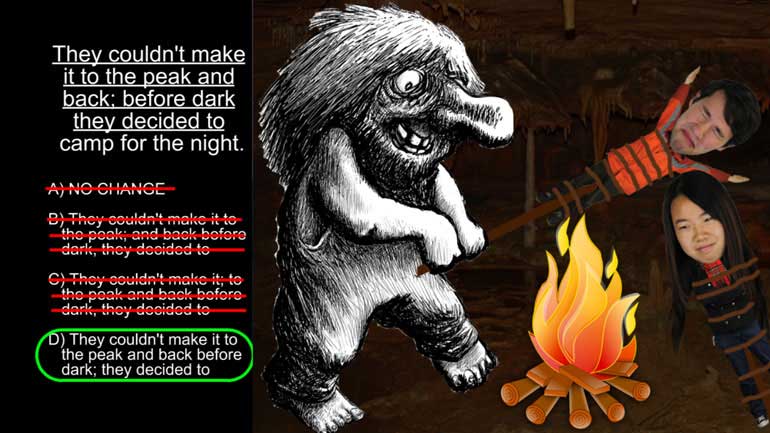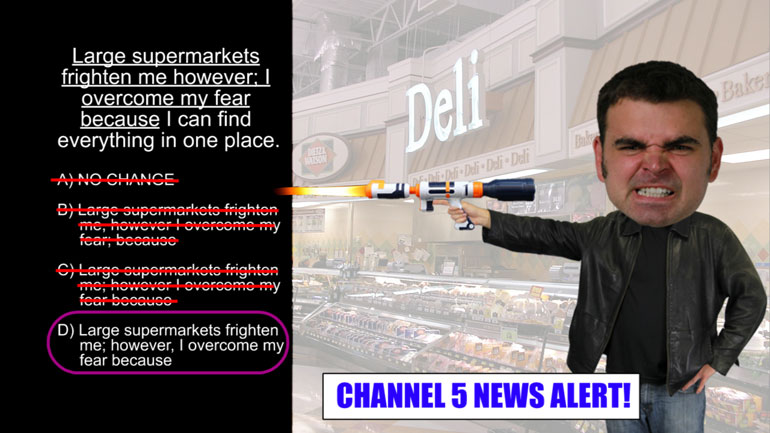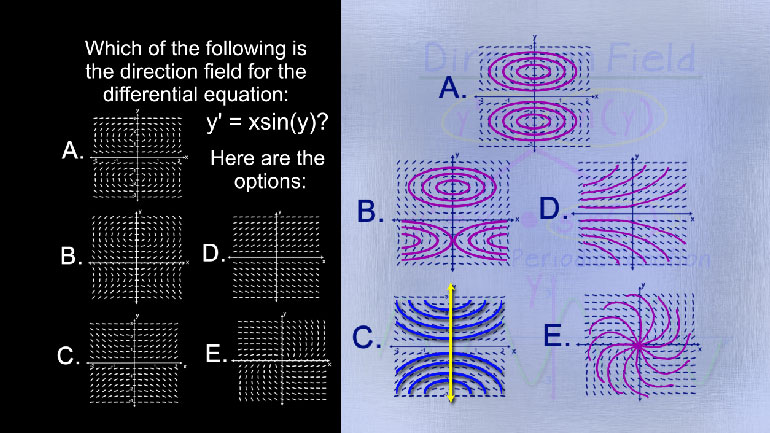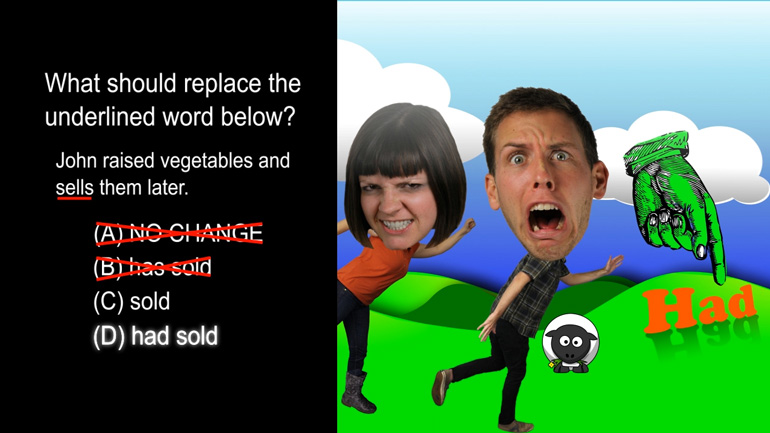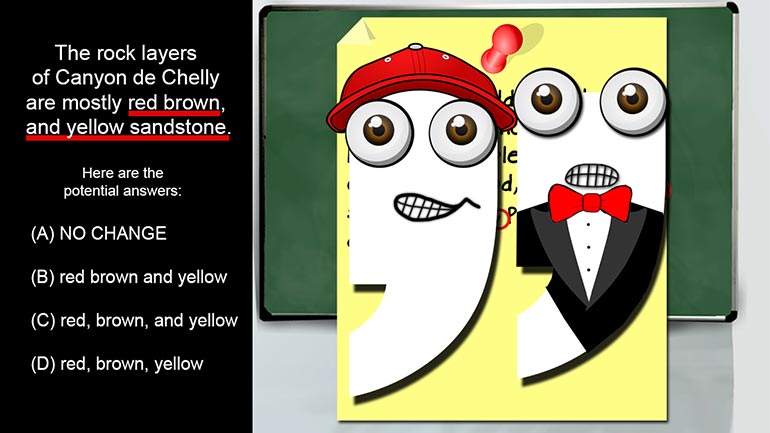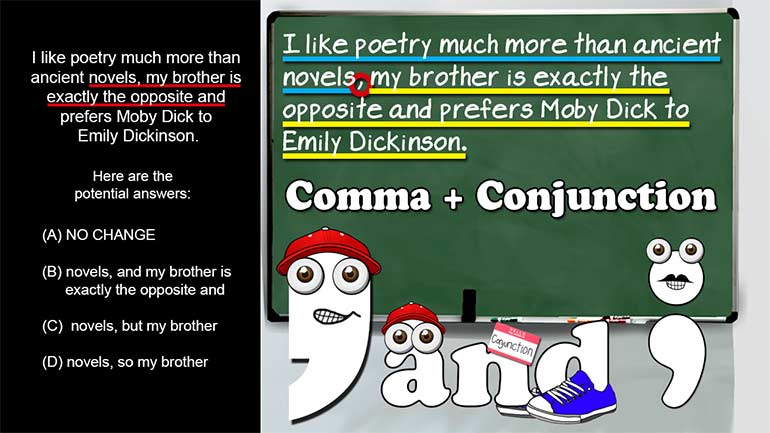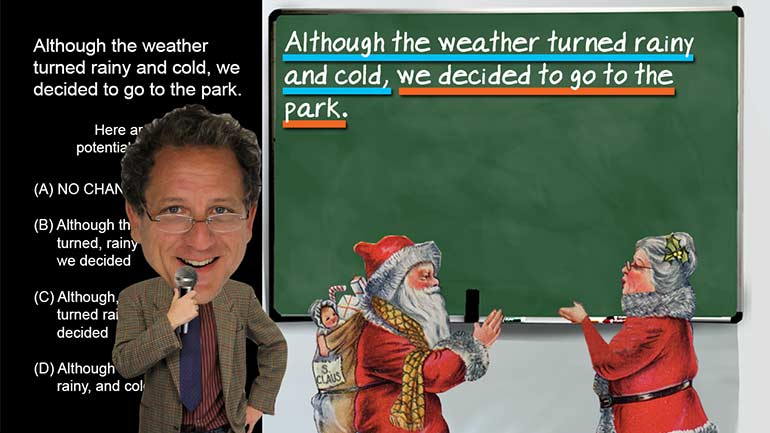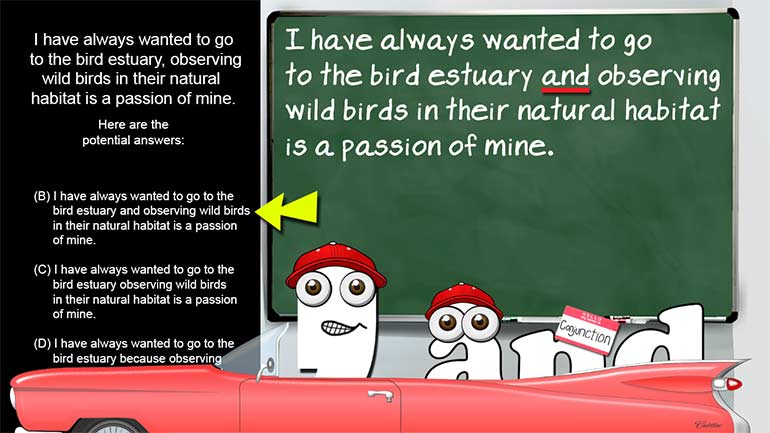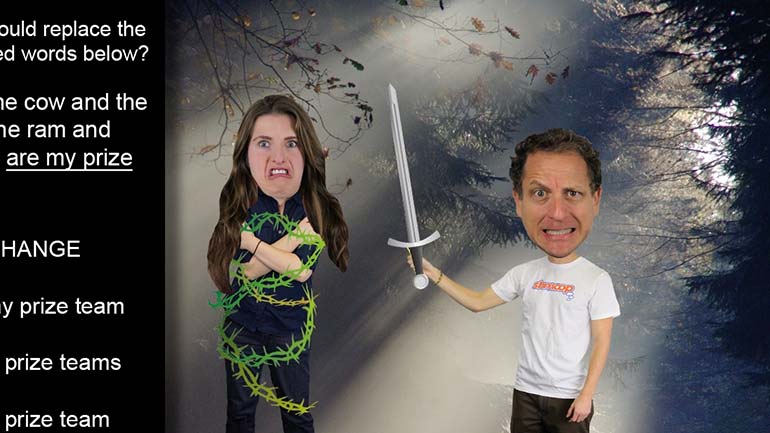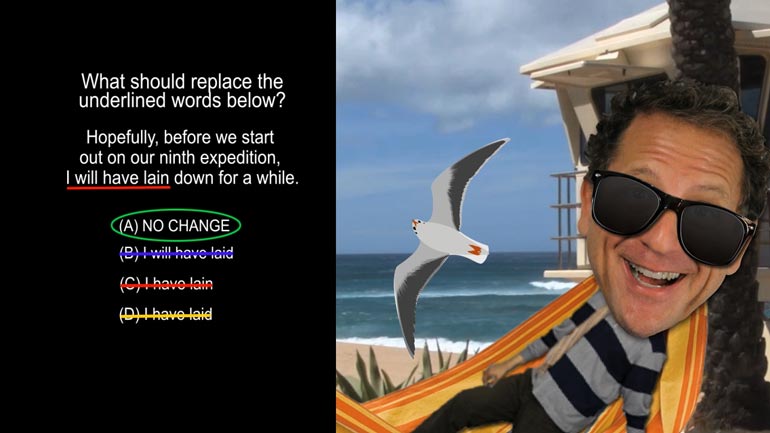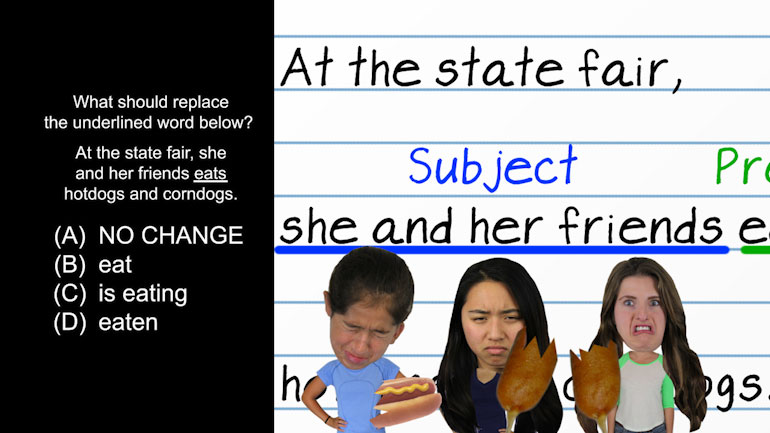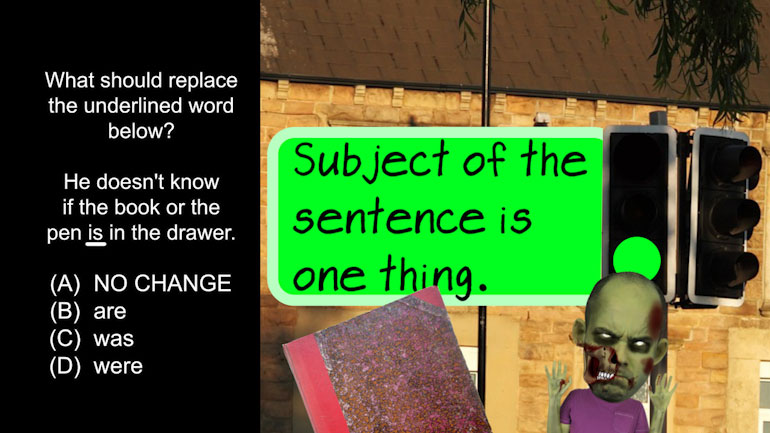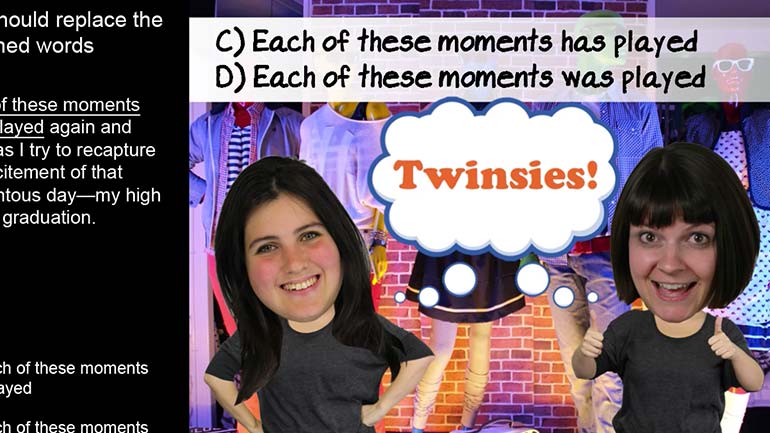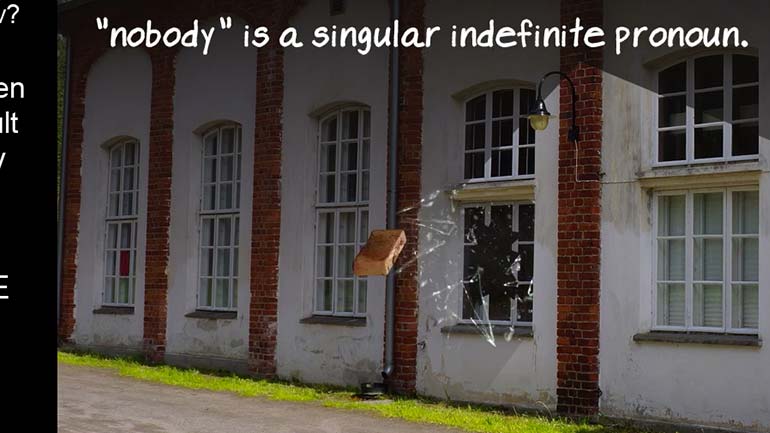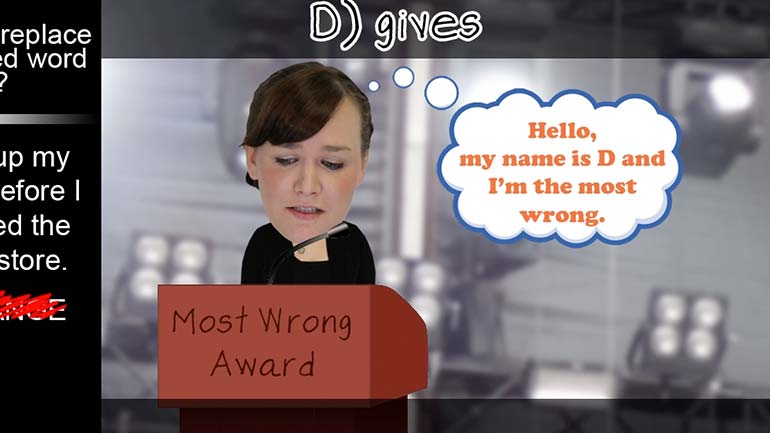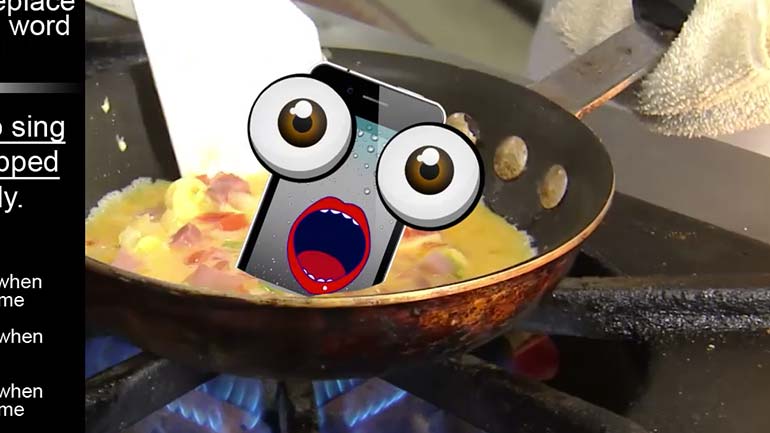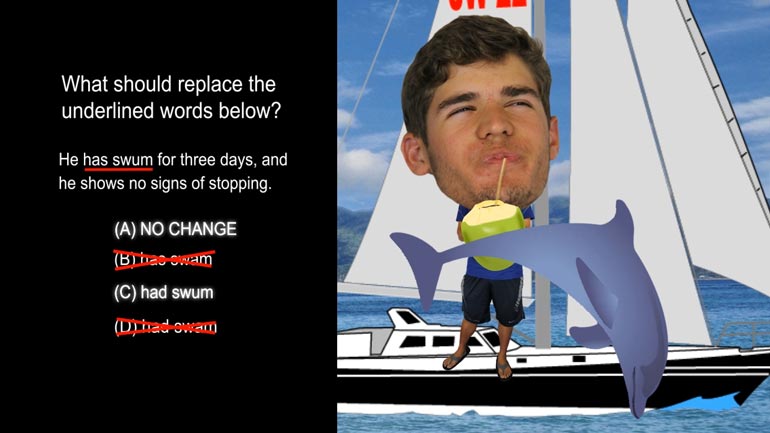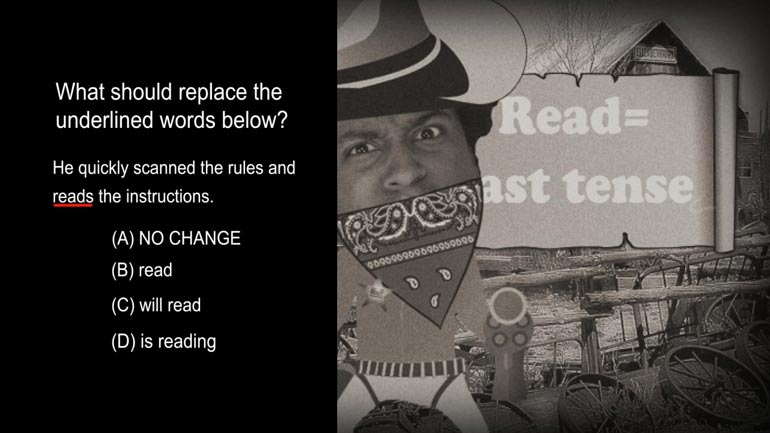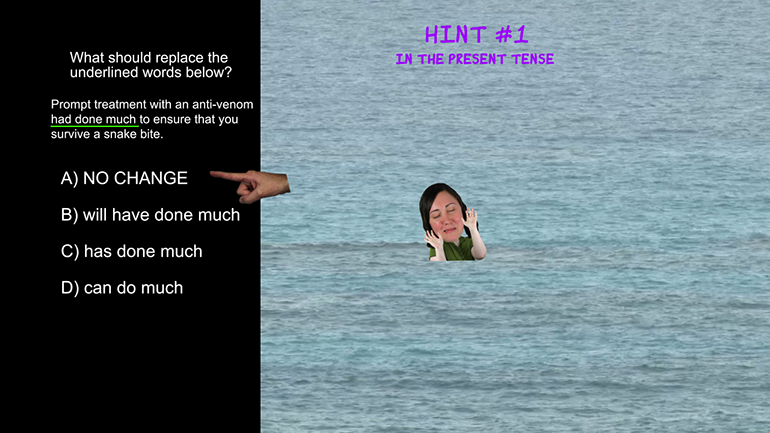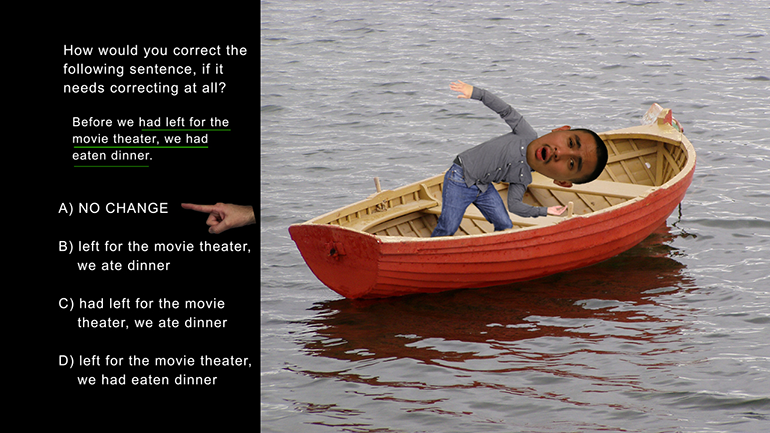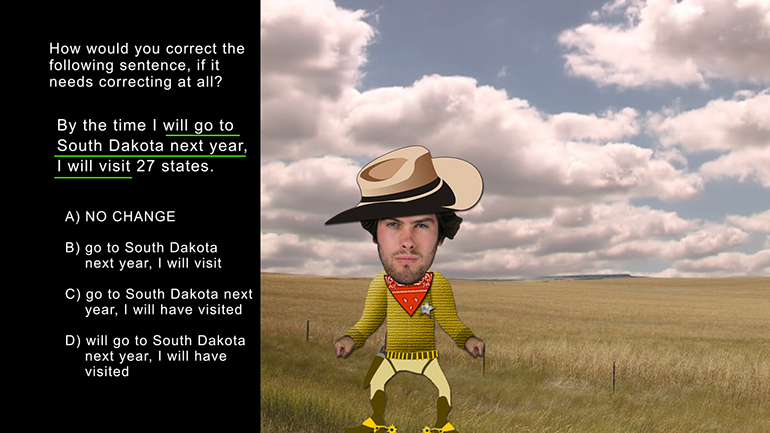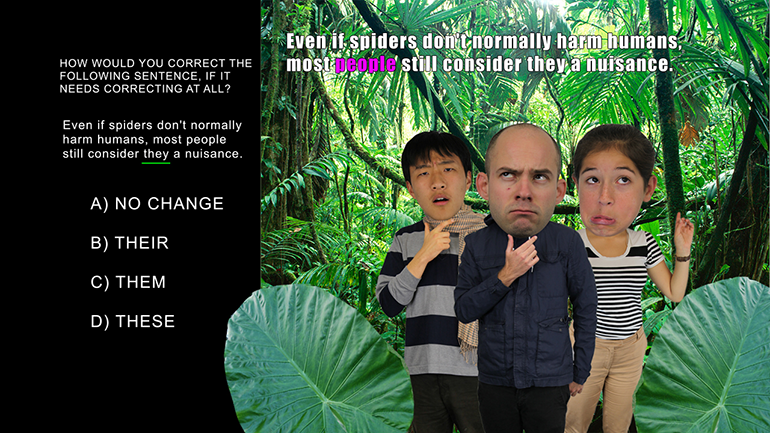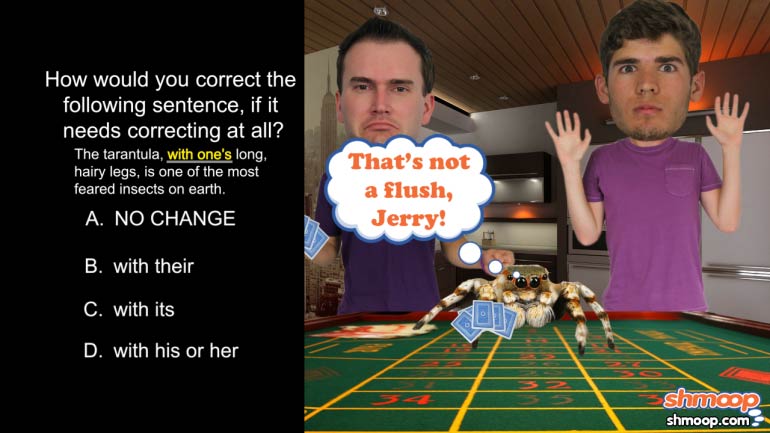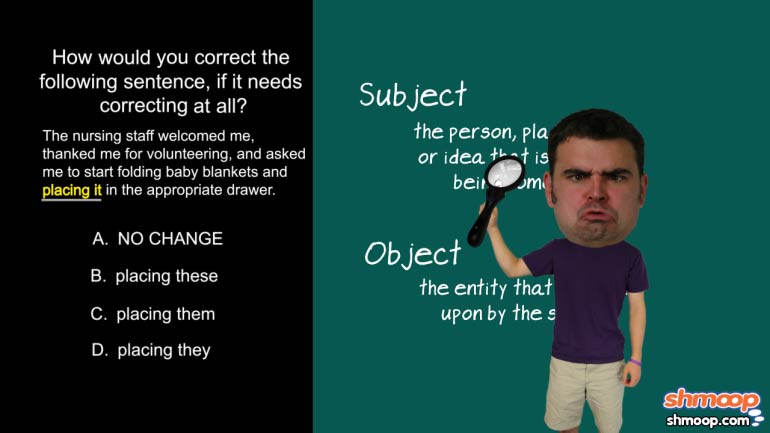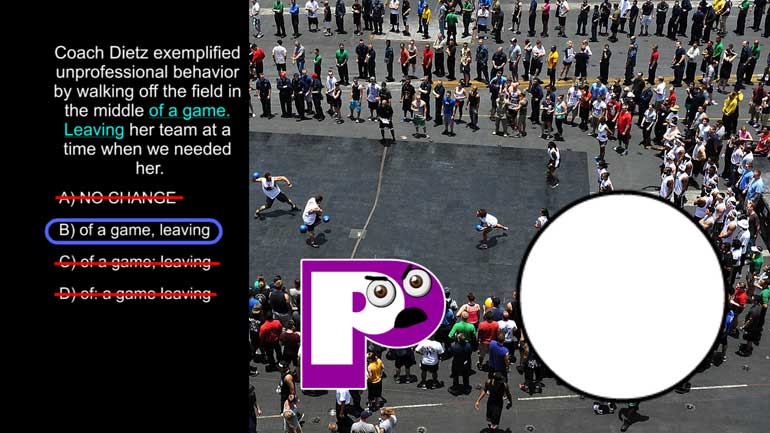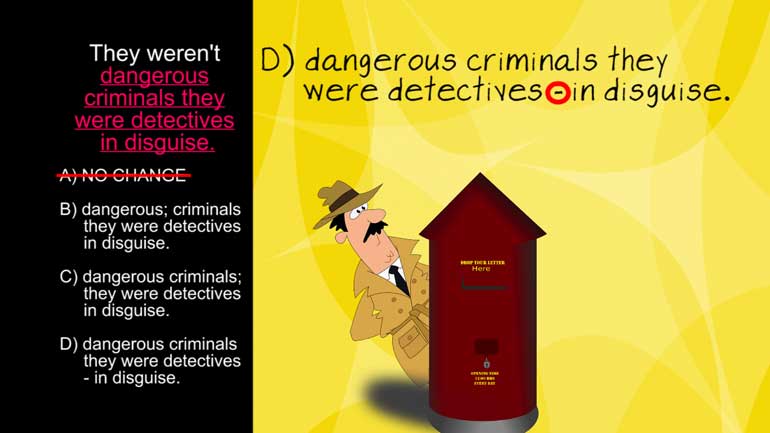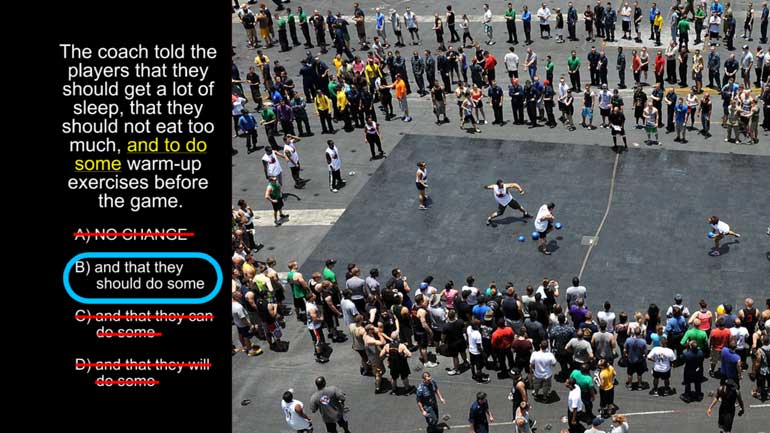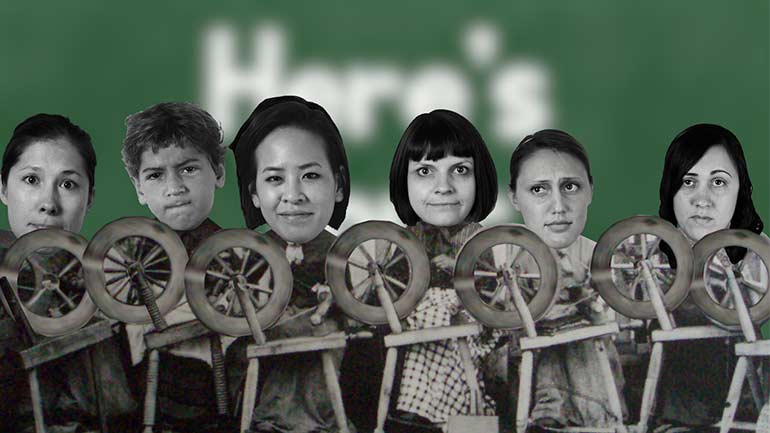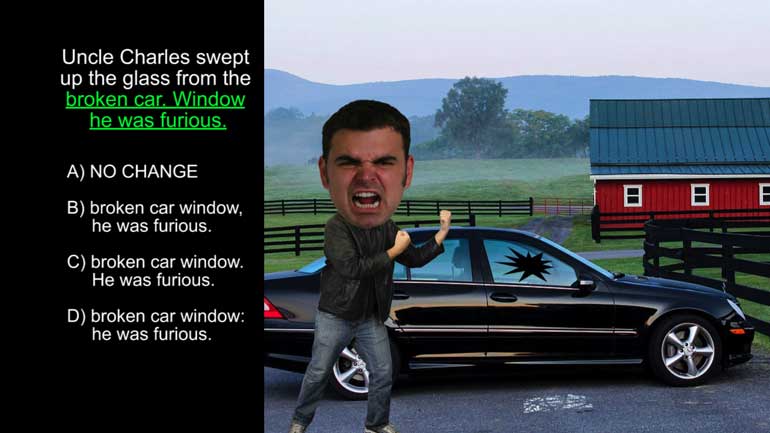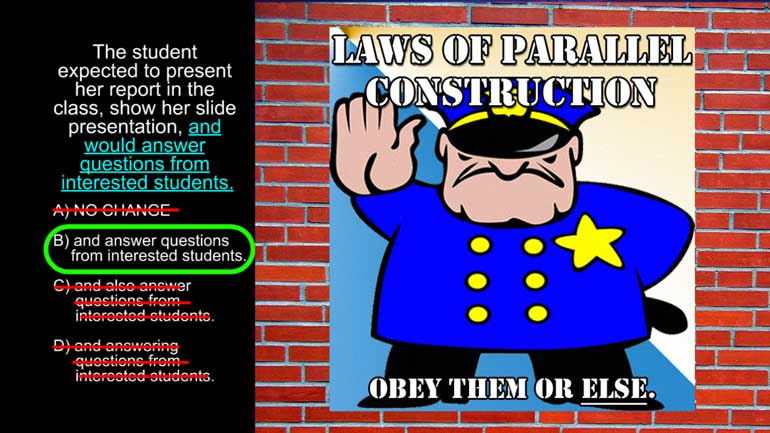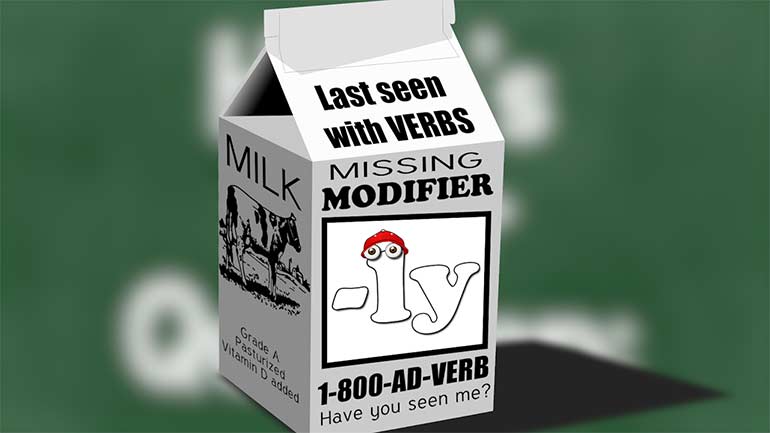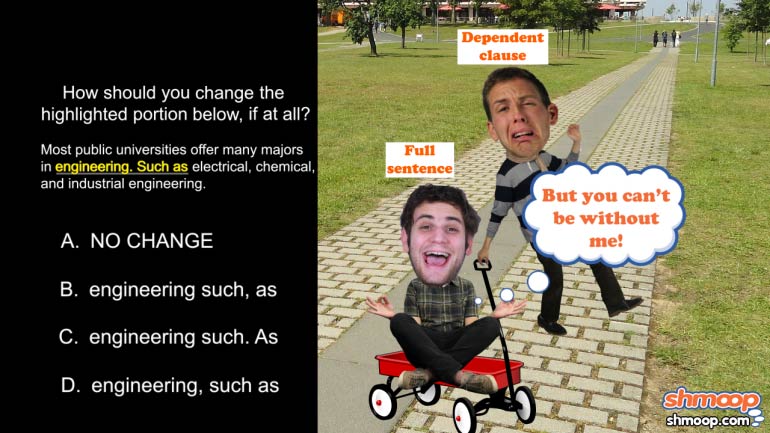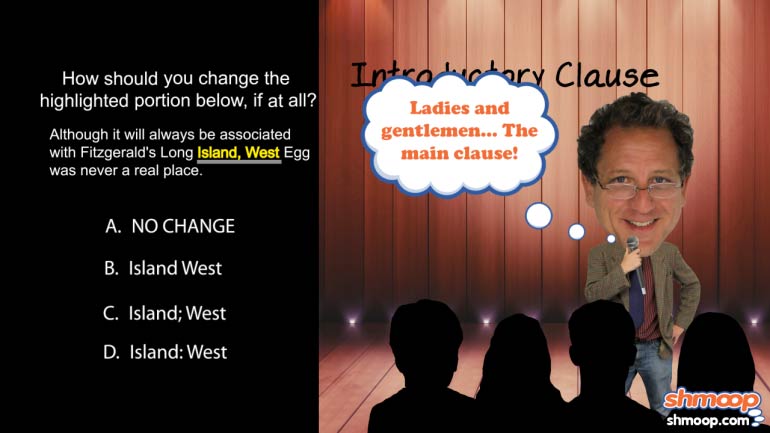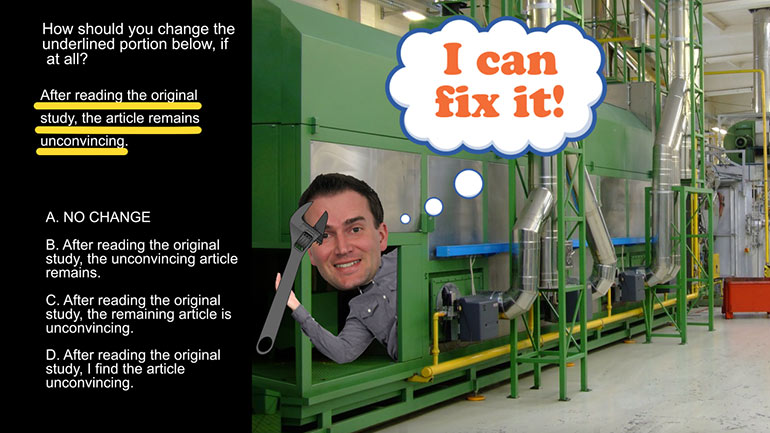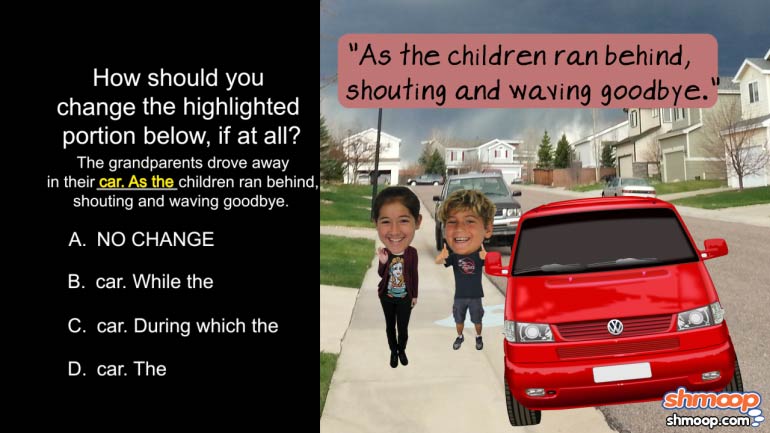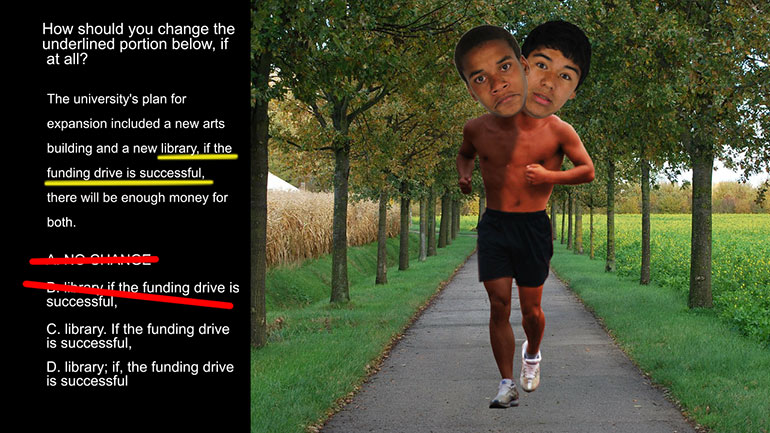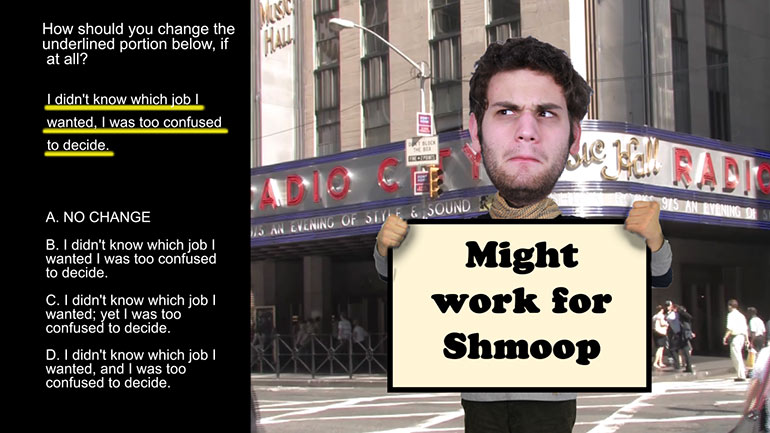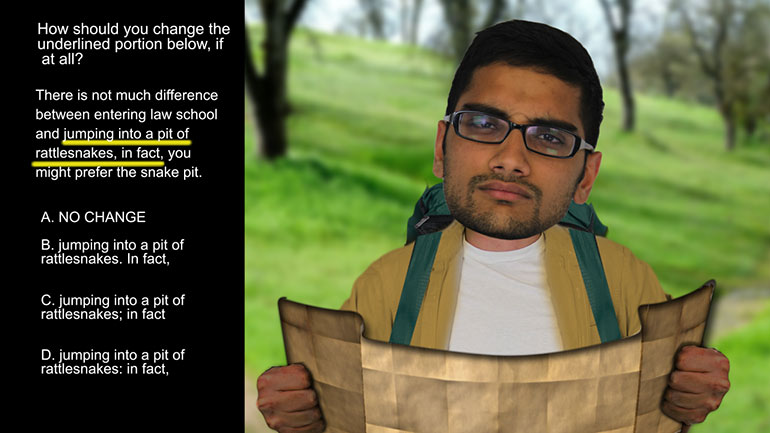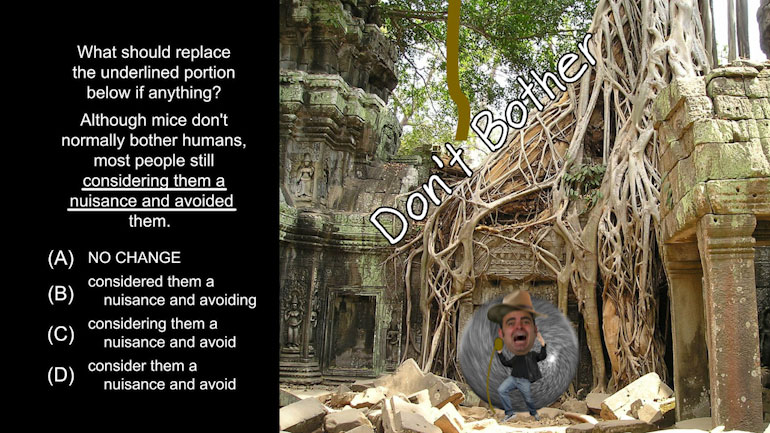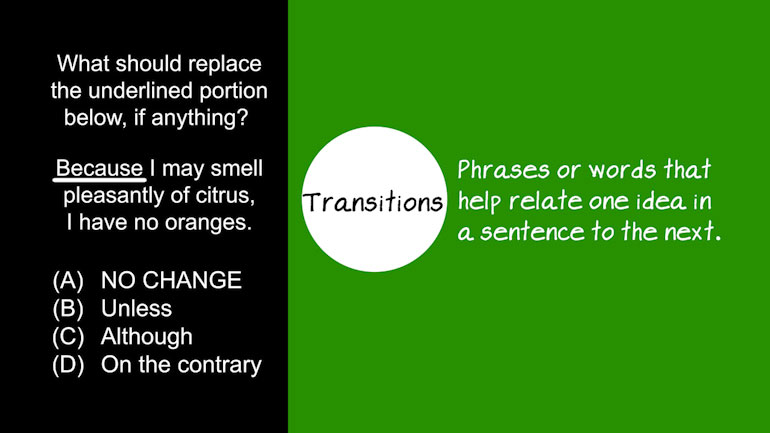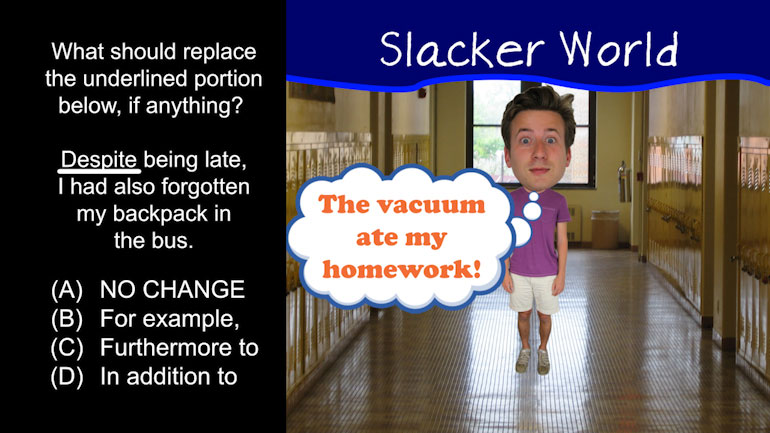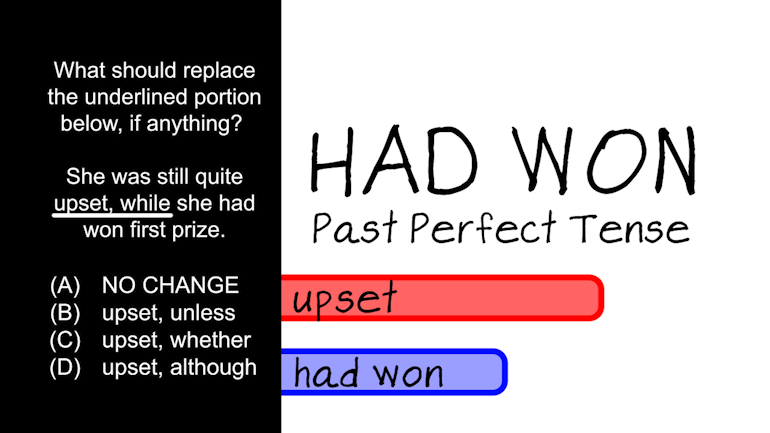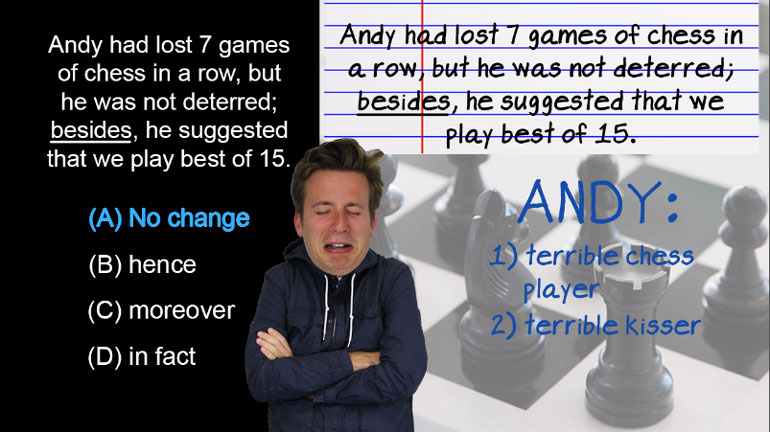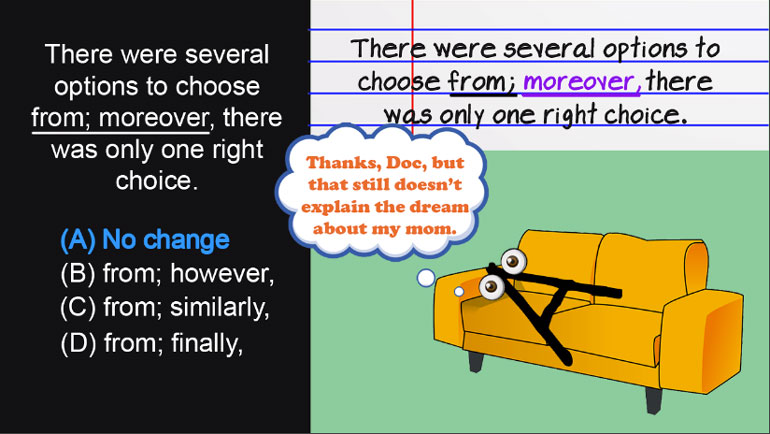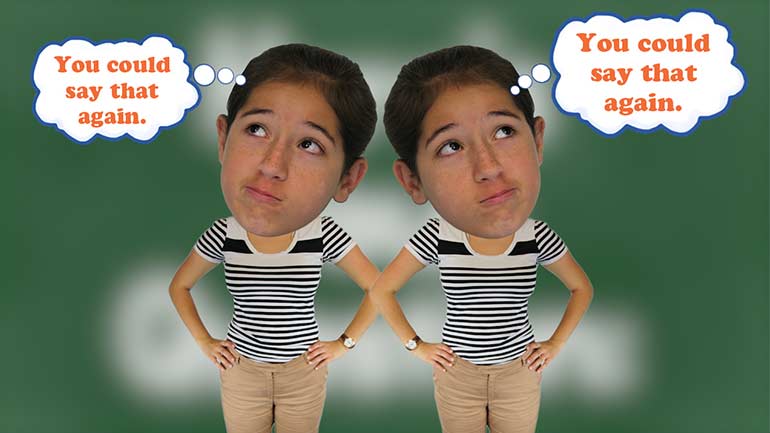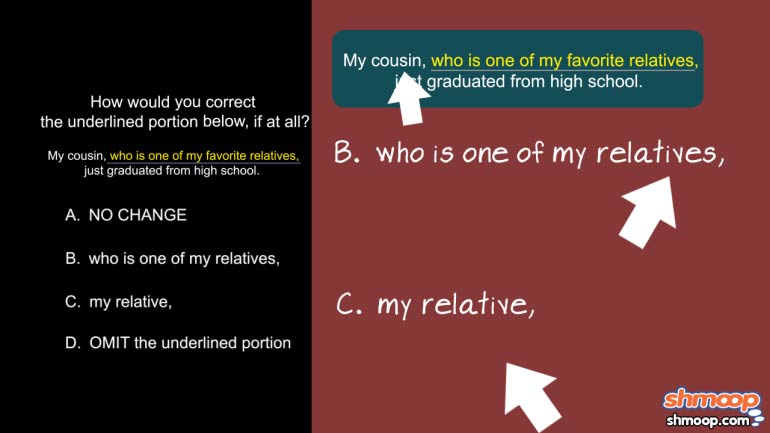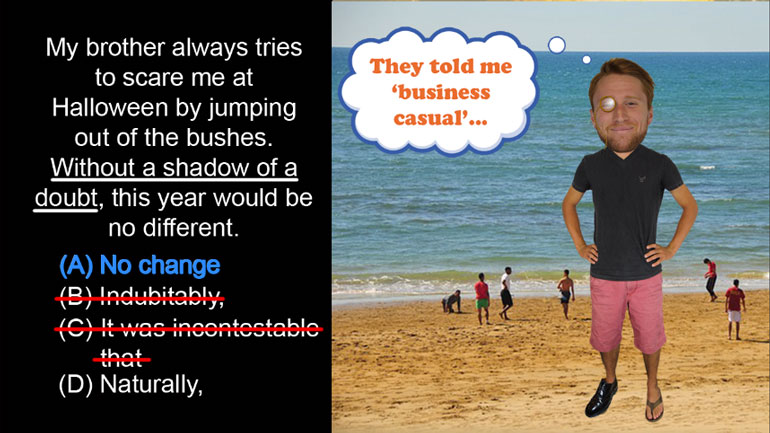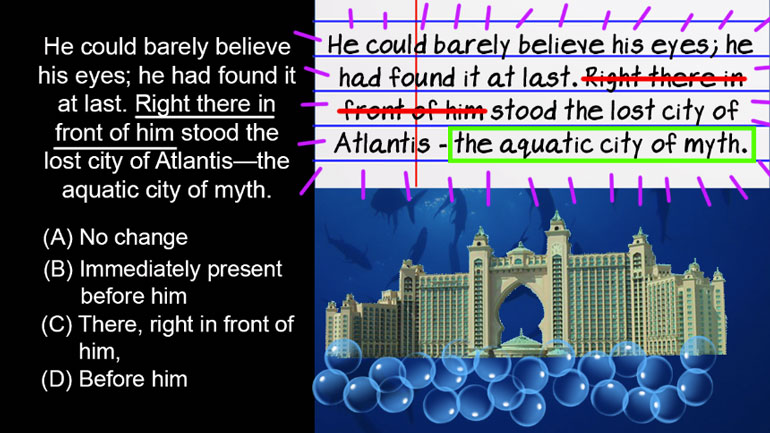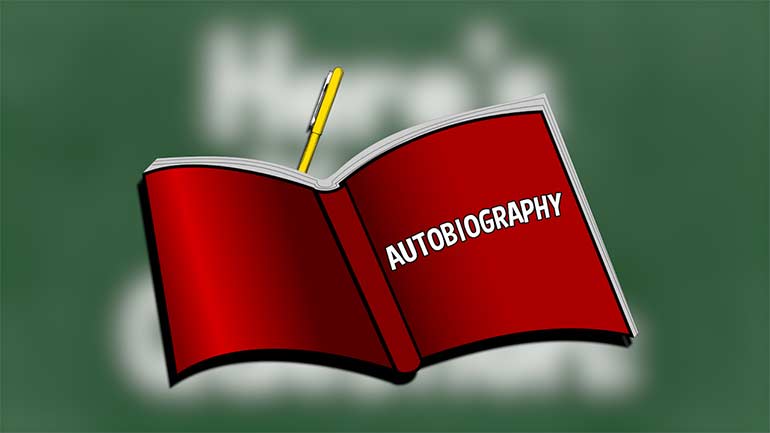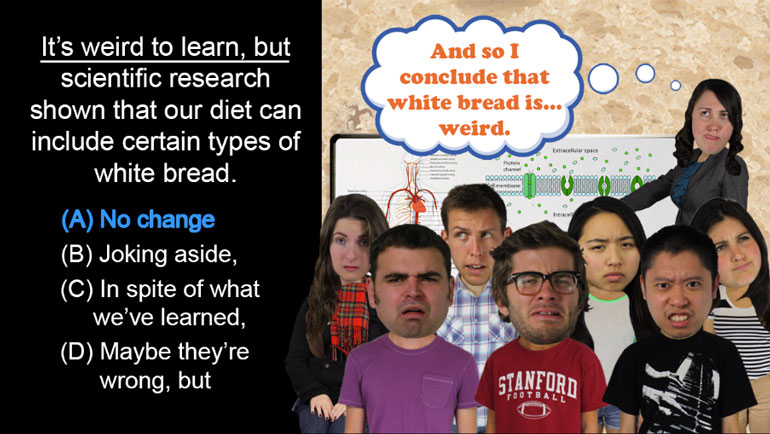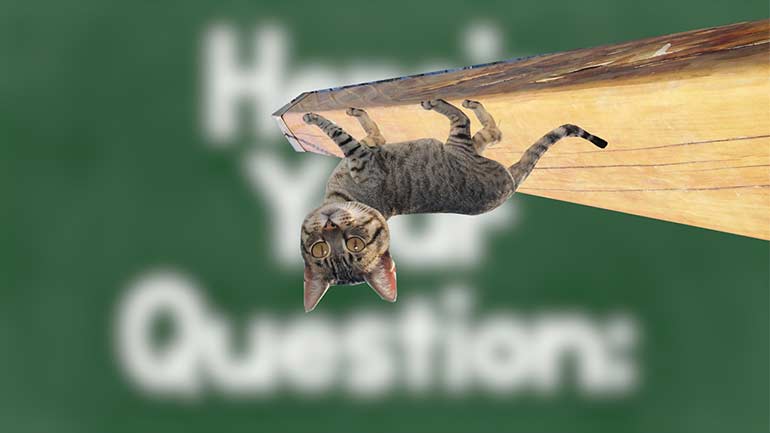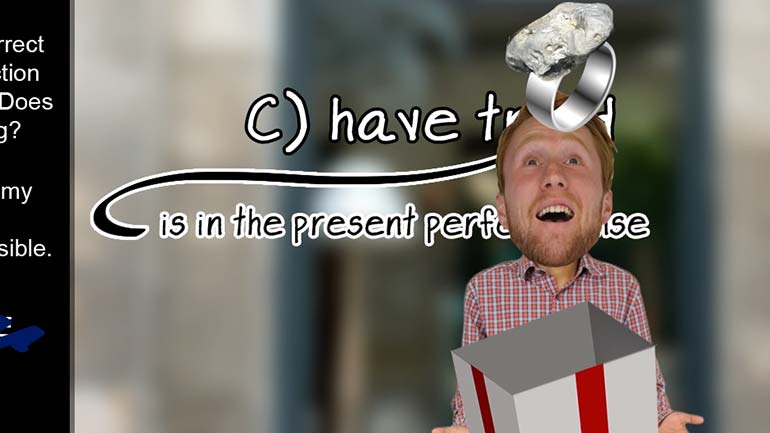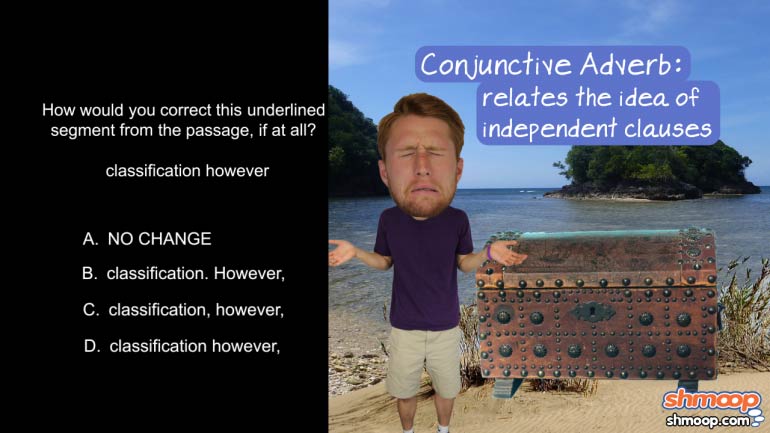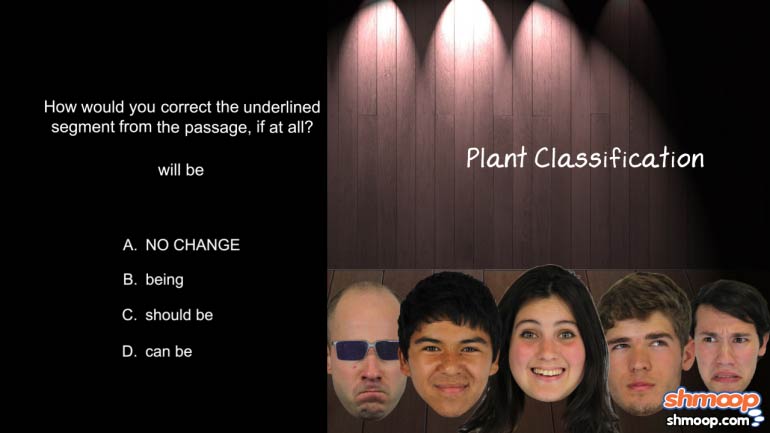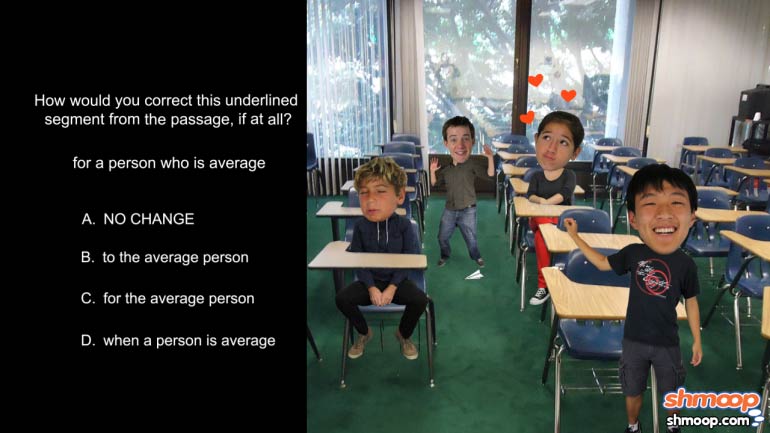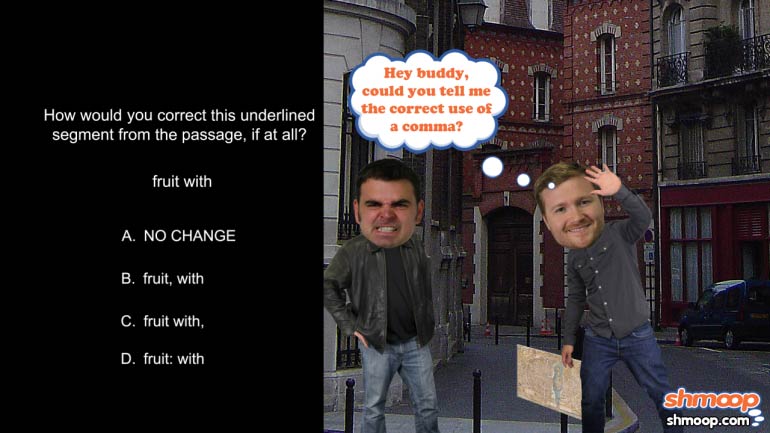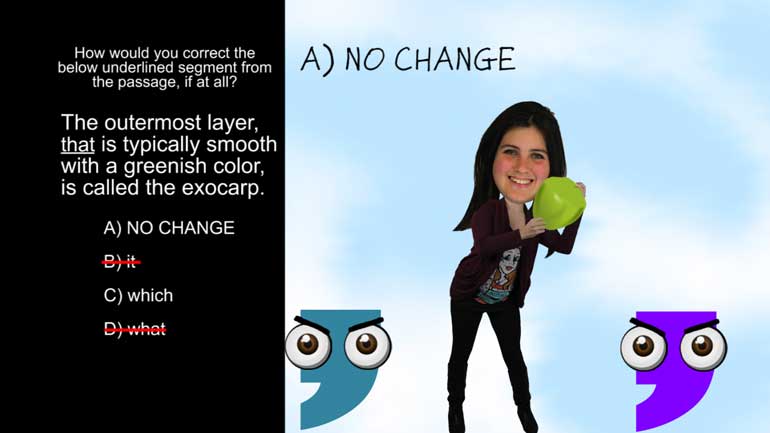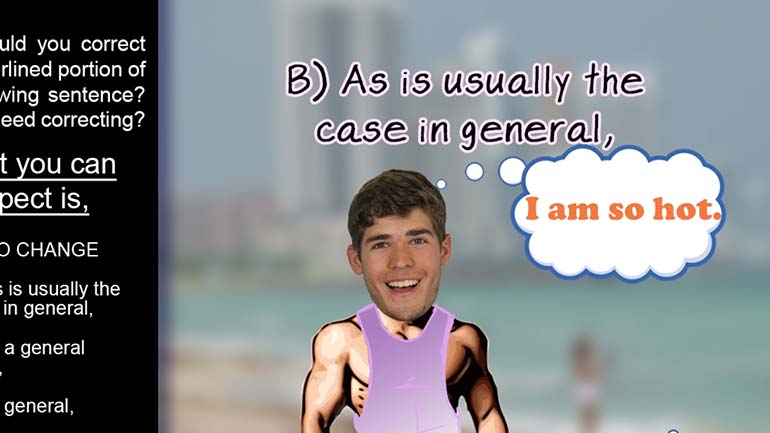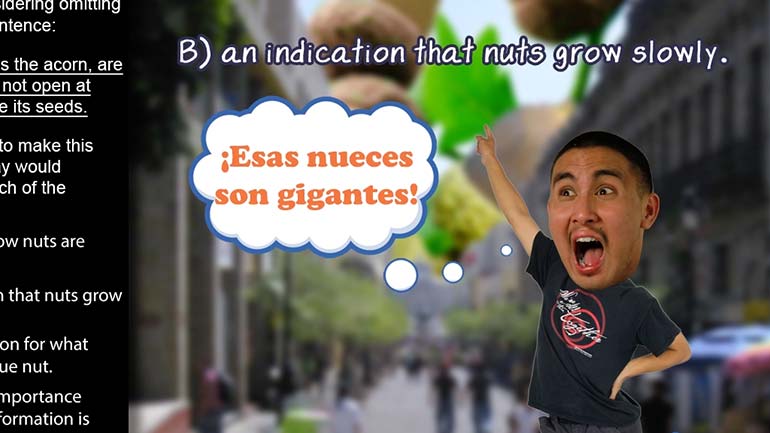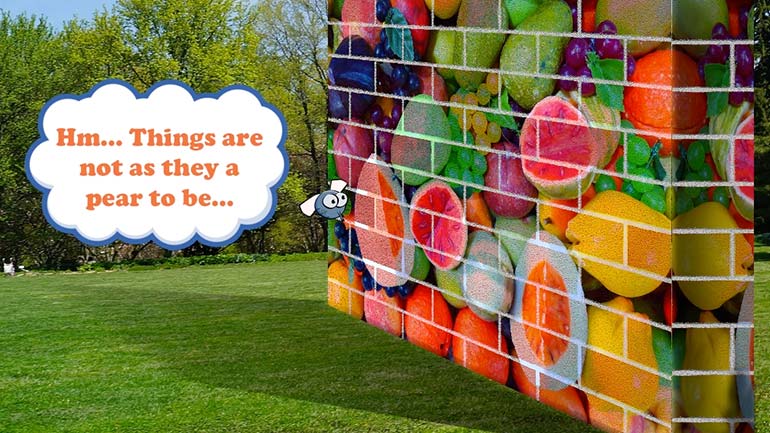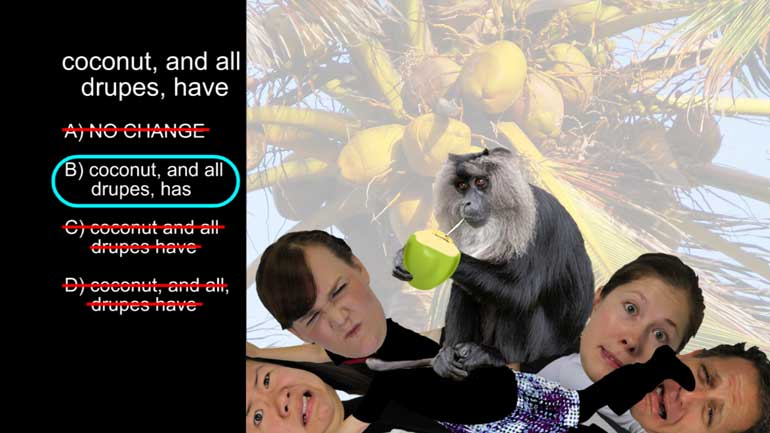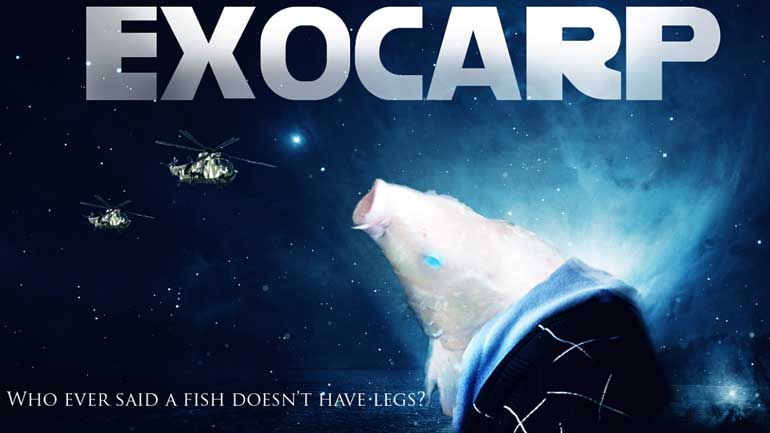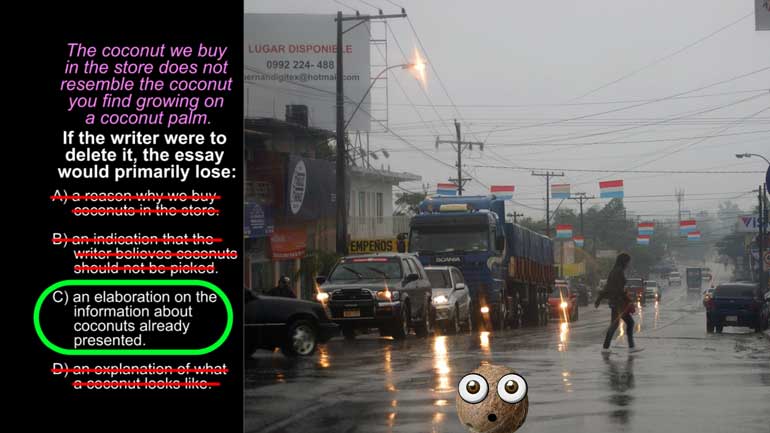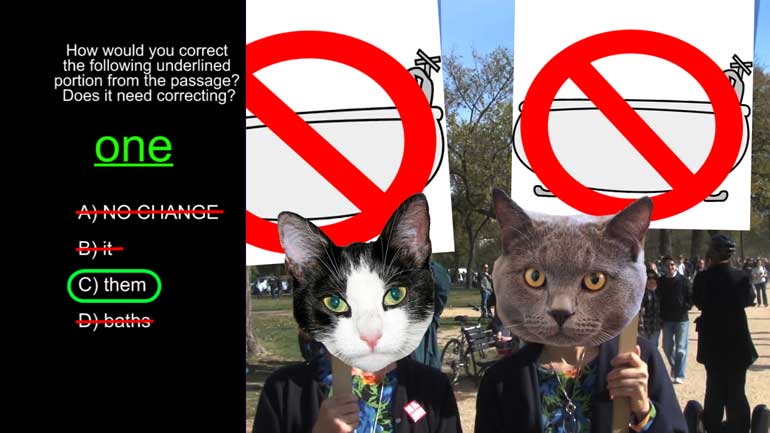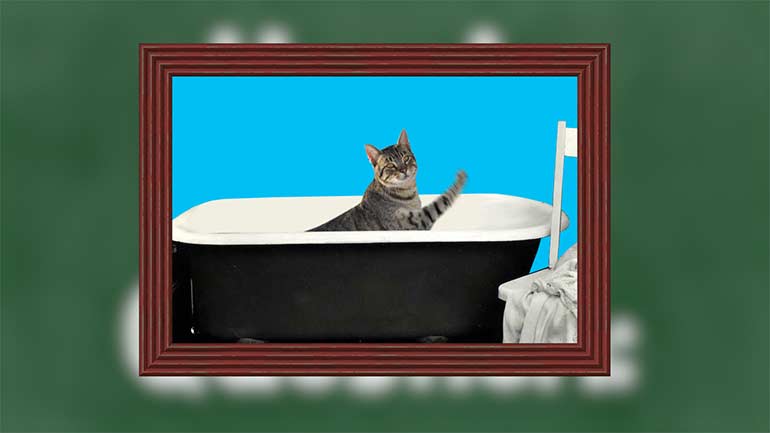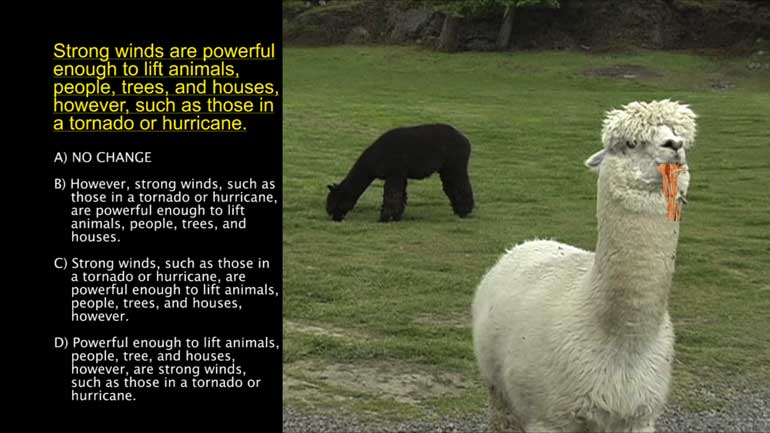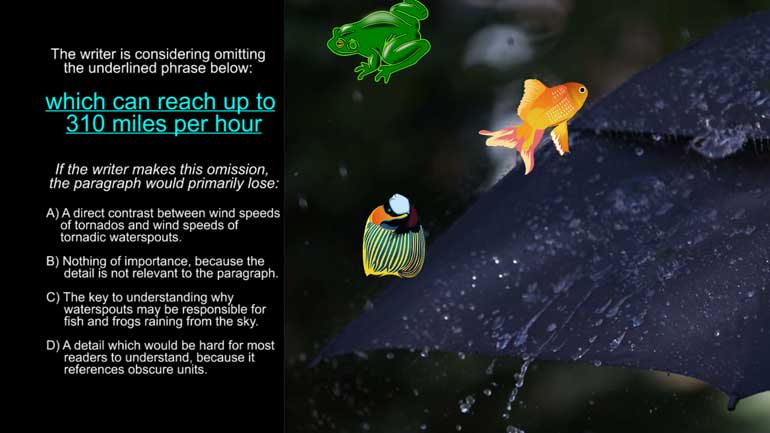ShmoopTube
Where Monty Python meets your 10th grade teacher.
Search Thousands of Shmoop Videos
ACT English Videos 156 videos
ACT English: Punctuation Drill 2, Problem 2. Where should the semi-colon be placed?
ACT English: Punctuation Drill 3, Problem 1. How should this sentence be changed so that it is grammatically correct?
ACT English: Punctuation Drill 3, Problem 2. How should we properly hyphenate the words in this sentence?
ACT English 2.1 Punctuation 519 Views
Share It!
Description:
ACT English: Punctuation Drill 2, Problem 1. Which choice of punctuation best completes the sentence?
Transcript
- 00:03
Here's your shmoop du jour, brought to you by Independent Clauses. It's only a matter
- 00:08
of time before Kelly Clarkson writes a song about them.
- 00:12
I am going home I intend to stay there.
- 00:24
Notice how "I am going home" and "I intend to stay there" could both stand alone as sentences.
- 00:31
That clues us in to the fact that they're both independent clauses. Kinda like this guy.
Full Transcript
- 00:36
It's looking like another independent clause
- 00:38
love story. These things always have a way of getting together when they're not supposed to.
- 00:43
Ever read Romeo and Juliet? We're going to play the role of Friar Lawrence and get these
- 00:47
two together, although hopefully this story won't end in death.
- 00:51
Alright. Well, we know that there are a few ways we could join these two sentences.
- 00:55
The first and easiest way is to just plop down a period. This brings a pause between
- 00:59
the two sentences, and if the sentences are separate and unrelated, this method makes
- 01:03
the most sense. But in this case, these clauses are pretty
- 01:06
clearly related. If we check the answer choices, only one of the options separates the sentence
- 01:11
using a period. If we plug that into the sentence, we end
- 01:14
up with "I am going home I intend. to stay there."
- 01:18
The period is placed in the wrong spot, so it just sounds as if the speaker is having
- 01:22
breathing problems Another way we could combine the two clauses
- 01:25
is with a comma and a conjunction.
- 01:27
We can't have a comma by itself, because that would be a comma splice, but we can use it
- 01:32
with a conjunction, like and.
- 01:35
Unfortunately, option C doesn't work out because it uses the comma without a nice conjunction,
- 01:40
forming that annoying comma splice. The final, and least common way is with a
- 01:44
semicolon. Semicolons are just like periods, only they show that the clauses are closely
- 01:49
related. Option B utilizes a semicolon nicely, and
- 01:52
puts it in the right place. But for every right answer, there are three wrong answers,
- 01:56
so let's make sure the original sentence doesn't work as is before we decide to put all our
- 02:01
eggs in B's basket. Well, there's not really anything in between
- 02:05
the two clauses. No period, comma, conjunction, or semicolon.
- 02:10
Which means it has to be wrong; you can't just throw the two clauses together.
- 02:15
Option B is the way to go. So happy we could help out a couple of star-crossed lovers.
Related Videos
ACT English: Punctuation Drill 2, Problem 2. Where should the semi-colon be placed?
ACT English: Punctuation Drill 3, Problem 1. How should this sentence be changed so that it is grammatically correct?
ACT English: Punctuation Drill 3, Problem 2. How should we properly hyphenate the words in this sentence?
ACT English: Punctuation Drill 3, Problem 4. Which choice best formats this list of items?
ACT English: Punctuation Drill 2, Problem 4. Which punctuation fits best in this sentence?




